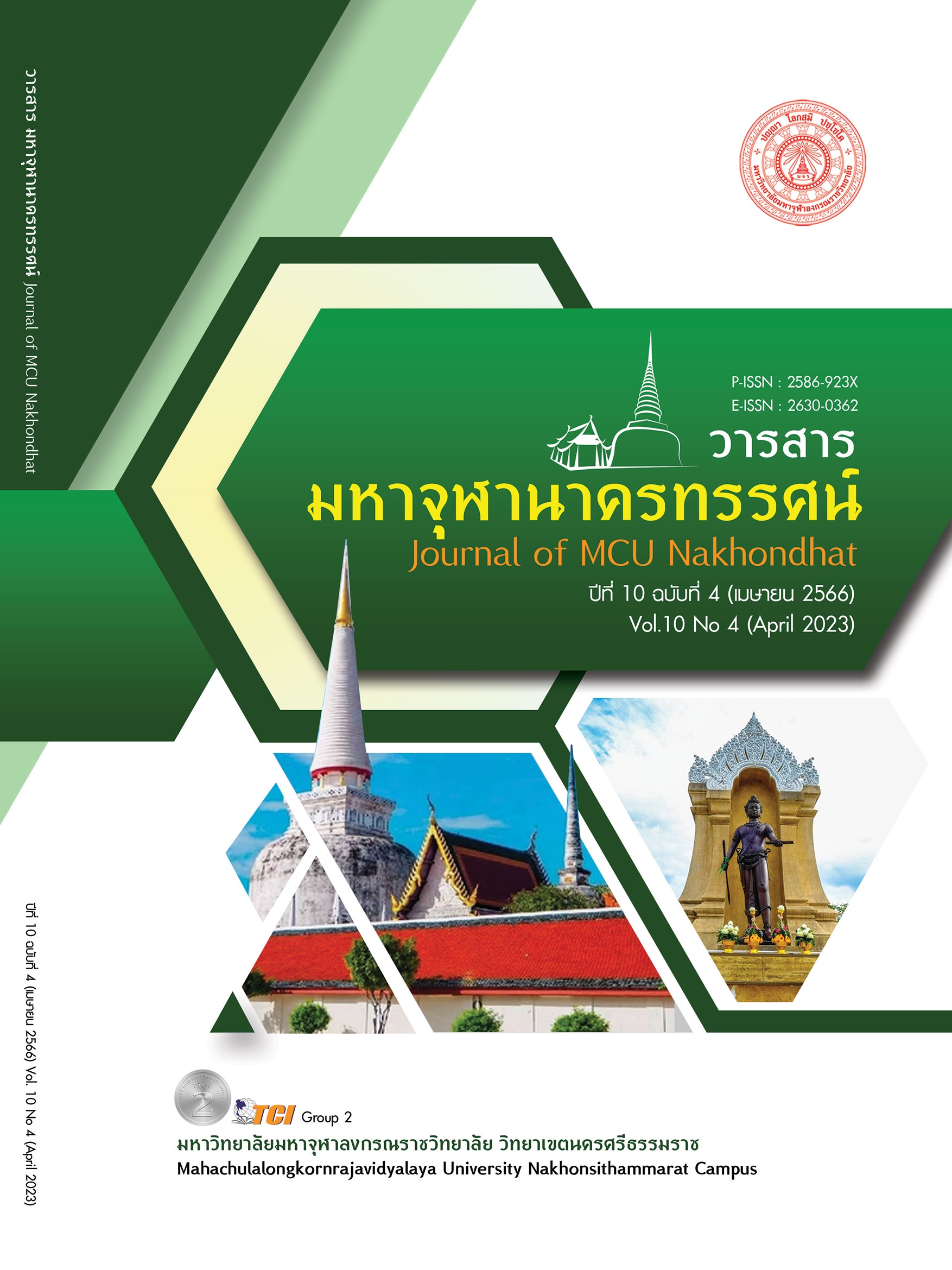DEVELOPING CREATIVE THINKING IN MANAGING DIGITAL LEARNING
Main Article Content
Abstract
the use of a combination of small group meeting results on learners' positive thinking skills. Including observations from classroom activities according to the teaching plan process developed for use in digital learning management. Including interviews to teach positive thinking skills of faculty members in the subjects of Thai language learning, mathematics, science and technology. foreign language Social Studies, Religion and Culture health education physical education and career to develop positive thinking skills in digital learning management of secondary school students The tools used to collect data in the research consisted of 1) in-depth interviews and 2) small group meetings. with document data analysis and the analysis of data from in-depth interviews was used to separate the main issues according to the structure of questions and small group meetings. The results showed that developing positive thinking skills in digital learning management The result of the sub-group meeting found that Teachers agree that positive thinking skills should be promoted in an integrated subject area. Rather than a group of logical learning facts, for example. in the art learning subject group or social studies, religion and culture subjects were able to make a good plan for developing positive thinking skills, while mathematics and science subjects were subjects that other thinking skills should be emphasized in accordance with the course and allow the learners to integrate their thinking skills until finally becoming a higher level of thinking.
Article Details

This work is licensed under a Creative Commons Attribution-NonCommercial-NoDerivatives 4.0 International License.
References
เกียรติวรรณ อมาตยกุล. (2544). อยู่กับเด็กๆ . กรุงเทพมหานคร: ที.พี.ปริ๊นท์.
ถิตรัตน์ พิมพาภรณ์ และประสพชัย พสุนนท์. (2559). องค์ประกอบความสุขการทำงานของพนักงานระดับปฏิบัติการในธุรกิจโรงแรมเมืองพัทยา. วารสารวิชาการ Veridian E-Journal, 9(1), 121-139.
เทอดศักดิ์ เดชคง. (2548). มีดีบ้างไหม? คําถามพลิกชีวิต เปลี่ยนวิกฤตให้เป็นโอกาส. กรุงเทพมหานคร: มติชน. ไพเฟอร์.
นิภา แก้วศรีงาม. (2547). ความคิดเชิงบวก (Positive Thinking) พึงคิดว่าทุกปัญหามีทางออก ไม่ใช่ ทุกทางออกเป็นปัญหา. วารสารวงการครู, 1(12), 76–78.
พันธุ์ธัช ศรีทิพันธ์ และคณะ. (2559). ปัจจัยที่ส่งผลต่อความคิดเชิงบวกในการทำงานของข้าราชการครูและบุคลากรทางการศึกษา : การวิเคราะห์ MIMIC. Veridian E-Journal Silpakorn University, 9(1), 1336–1348.
พิทักษ์ สุพรรโณภาพ. (2561). การคิดเชิงบวก : ตัวแปรในการพัฒนาชีวิต. Veridian E-Journal Silpakorn University, 11(3), 1958 – 1978.
เวนเทรลล่า, สก็อตต์ ดับเบิ้ลยู. (2545). อานุภาพแห่งความคิดเชิงบวกในโลกธุรกิจ. แปลโดย วิทยา พลายมณี. กรุงเทพมหานคร : เอ.อาร์.บิซิเนส เพรส.
สุธาสินี นาคสินธุ์. (2552). การวิเคราะห์องค์ประกอบของการคิดเชิงบวกของนักเรียนช่วงชั้นที่ 3. ใน วิทยานิพนธ์การศึกษามหาบัณฑิต สาขาวิชาจิตวิทยาการแนะแนว. มหาวิทยาลัยศรีนครินทรวิโรฒ.
Lefton, Lester A., & Laura Valvatne. (2022). Mastering Psychology. 2nd ed. Massachusetts : Allyn andMarsh II, G.E. (n.d.). Blended instruction: Adapting conventional instruction for large classes. Retrieved June 28, 2022 , from http://www.westga.edu/~distance/ojdla/winter64/mash64.htm
Papalia, Diane E., & Sally Wendkos Olds. (1958). Psychology. New York: McGraw-Hill Book Company.
Phra Paisan Visalo. (2011). Happiness of students for the wisdom of the land. In Student Affairs Division. Mahidol University.


